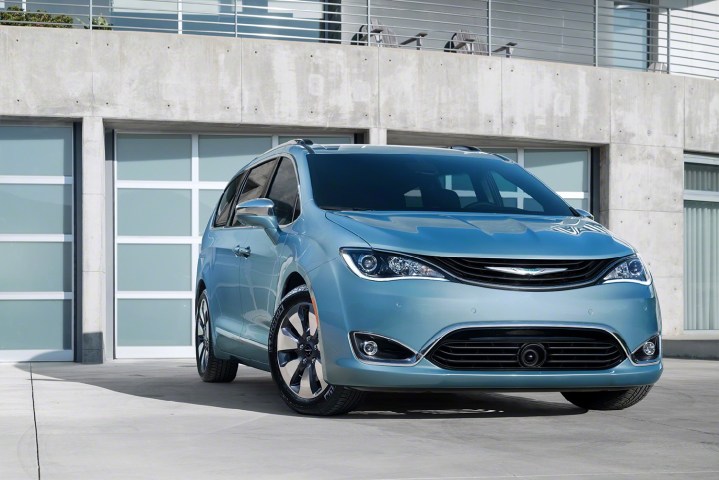
Anonymous sources previously hinted that the Pacifica could become a testbed for Google’s self-driving-car tech, and now Automotive News says that will indeed be the case. The project would reportedly constitute the first phase of an effort to continue development of autonomous-car tech, one that would still allow both Google and FCA to continue working with other companies.
The partnership would be Google’s first with an established automaker since it began pursuing self-driving cars. It built a fleet of autonomous Toyota Prius and Lexus RX 450h hybrid prototypes, but with no support from Toyota itself. Google’s self-designed autonomous-car prototypes were also developed without input from a carmaker. Recently, Google automotive boss John Krafcik has prioritized finding a carmaker to partner with.
Read more: 2017 Chrysler Pacifica first drive
The partners’ reasons for choosing the Pacifica over other FCA models will likely be revealed once an official announcement of the collaboration is made. It’s certainly not as cute as Google’s own electric pod cars, but the Pacifica is one of the newest models in the FCA lineup, so that may be a factor. It will also be offered with a plug-in hybrid powertrain, potentially continuing the green streak of Google’s previous green cars.
By working with FCA, Google will finally have a commercial outlet for its technology. The company is not particularly interested in building cars itself, and hasn’t been able to attract much interest from carmakers until now. A deal with General Motors reportedly couldn’t be reached because of disagreements over ownership of the technology and data. Widespread rumors also pointed to a partnership with Ford, but that was never confirmed.
FCA, meanwhile, can leverage Google’s experience with self-driving cars and avoid spending too much money on its own development effort. CEO Sergio Marchionne believes the high cost of new technology poses a potential threat to the car industry as a whole. The Google alliance will also help FCA catch up quickly with companies like Ford, Nissan, and Volvo that already have autonomous-car development programs underway.
Editors' Recommendations
- How a big blue van from 1986 paved the way for self-driving cars
- This self-driving racing car could have done with a driver
- Waymo to bring self-driving minivans back to Bay Area for delivering packages
- Waymo’s next-gen self-driving tech can see what’s happening 500 meters ahead
- Waymo’s self-driving minivans and big rigs arrive in two more states


